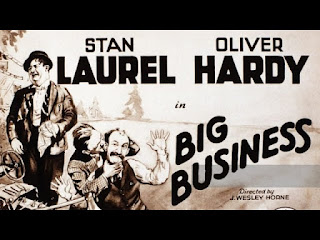Bridget Jones's Diary (2001)
.jpg)
Bridget Jones's Diary appears on a fair number of lists of Christmas and New Year's movies, usually with the caveat that most of the movie doesn't take place on the holiday, which is probably why we glossed over it for as long as we did. But now that we're exploring less restrictive definitions of "Christmas movie," I thought it was time to give this a watch, which led to a couple surprising revelations. First, while only a fraction of the movie is set over the holidays, this would have applied under even our stricter criteria, as its thematic use of those celebrations (particularly New Year's) permeates the entire film. But second and more important is that this movie absolutely fucking rules. I'll be honest - I hadn't expected that. I'm not sure why I assumed it wouldn't, but I suspect it has something to do with the trailer (I just looked it up on YouTube, and it certainly isn't doing the movie any favors). But the film itself is hil


.jpg)
.jpeg)
.jpg)
.jpg)
